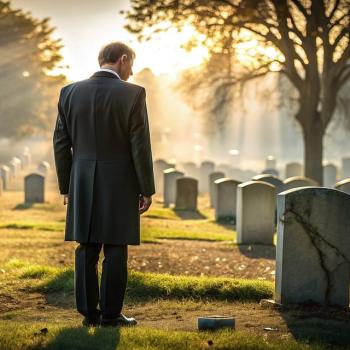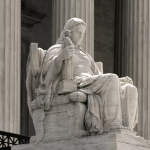Do we actually know Ultimate Reality or do we we only know ABOUT it?
On Facebook, a good friend, who is a modern mystic, said, “The Transcendent is universal, but not personal. It is beyond all thoughts and ideas of being. It is Nameless, and It is Formless.”
I expected an eyeroll from some of our conservative Christians friends. So, I added that this understanding is NOT foreign to Christianity. Christian mystics, like Meister Eckhart, have written about “the Godhead.” Christian theologians, like Paul Tillich, have written about the “ground of being” or the “God above gods.” I wrote about mysticism here.
As soon as I mentioned “mystics,” a conservative Christian friend went off on a tangent about heresy and “mystical mumbo-jumbo.”

What is Mysticism, and Why Do Some Christians Mistrust It?
In The Way, I wrote that a mystic is a person who seeks union with a personal God or unity with an impersonal Universe. Every tradition, including Christianity, has its mystics, but Christianity is generally more doctrinal and less mystical than other traditions.
A mystic may not believe in a personal God. Also, he or she may not believe that the mystical experience is supernatural. The mystics, even those who believe in a personal God, often experience Ultimate Reality as a great darkness or a great light, a great silence or a great sound, a great presence or a great void. Most perceive a Oneness, which permeates everyone and everything.
Mysticism has an esoteric connotation. It is sometimes erroneously associated with the occult, so organized religion is often suspicious of the mystics and their experiences. Several saints, such as John of the Cross, were initially tortured before they were ultimately recognized as saints.
Catholicism has always been wary of mysticism, which seeks an unmediated path to God. The church advises that anyone having a mystical experience should confirm it with a priest. Likewise, Protestantism is a religion more of the head than of the heart, and Martin Luther preferred the “way of the cross” to the “way of the heart.”
Mystical Experiences Can Be Life-Changing
Studies show that almost one-third of us have had a mystical or peak or transcendent experience. Huston Smith, an expert on comparative religions, believes that mystical experiences are the pinnacle of human consciousness. Scientists have studied the brain waves of mystics, noting an increase in delta and theta waves, which signal connection and creativity.
Scientists have observed that brain stimulations, hallucinogens, seizures and strokes can produce experiences that are similar to mystical experiences. These events, like meditation and prayer, seem to remove filters that otherwise block the transcendent experience. Without these filters, the sight of every blade of grass and every drop of dew might overwhelm us.
Most religions, including the Eastern Orthodox branch of Christianity, embrace mysticism, and they seek a direct experience of God, regardless of their particular beliefs about God and unrestrained by their specific institutional structures. Many people can NOT understand how a religion could be built on a belief system, rather than on mystical experiences.
A mystical experience can cause many people to live their lives differently and to view their deaths differently. Because they have had a direct, positive and profound experience of Ultimate Reality, they realize their connection to everyone and everything. If you ask people who have had a mystical experience, they might say that the experience was more “real” than their everyday lives.
Still, many Christians do NOT seek to directly experience Ultimate Reality, at least not in the life-changing ways that the mystics experience Ultimate Reality.
Can We Trust Mystical Experiences?
If you ask some people if they ever encountered Ultimate Reality, they may say something like, “Yes, God told me to move to Dallas.” Typically, this is NOT a mystical experience. In hindsight, they are often NOT sure if God was talking to them or if they were talking to themselves. We need to be careful when we think that God is talking to us, whether we have mystical experiences or not.
Still, I do NOT know anyone who has ever had a direct, positive and profound encounter with Ultimate Reality who would describe this life-changing experience as “mystical mumbo-jumbo.” Should we be so quick to dismiss other peoples’ experiences? Do we actually know Ultimate Reality or do we we only know ABOUT it? Have you ever experienced Ultimate Reality?
If you want to keep up with the latest from You Might Be Right, please subscribe.
The Way is a Silver winner in the 2024 Nautilus Book Awards.
If you enjoyed this article, please leave a comment at the bottom of this page.
Thanks for reading You Might Be Right!!














